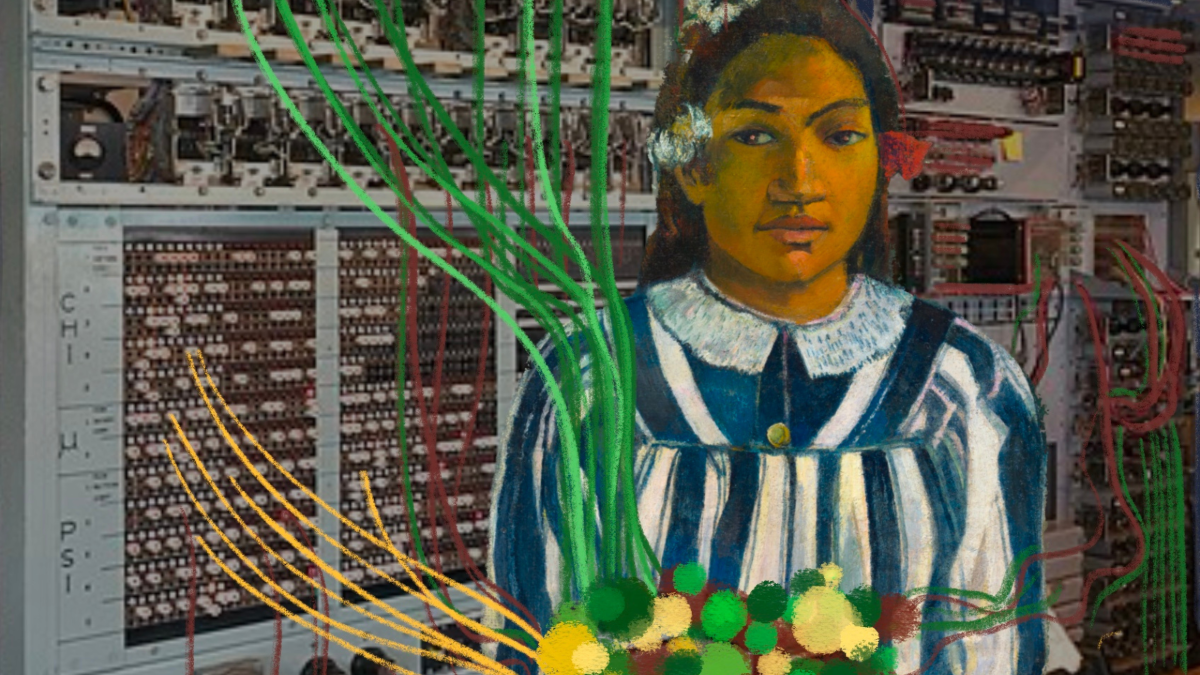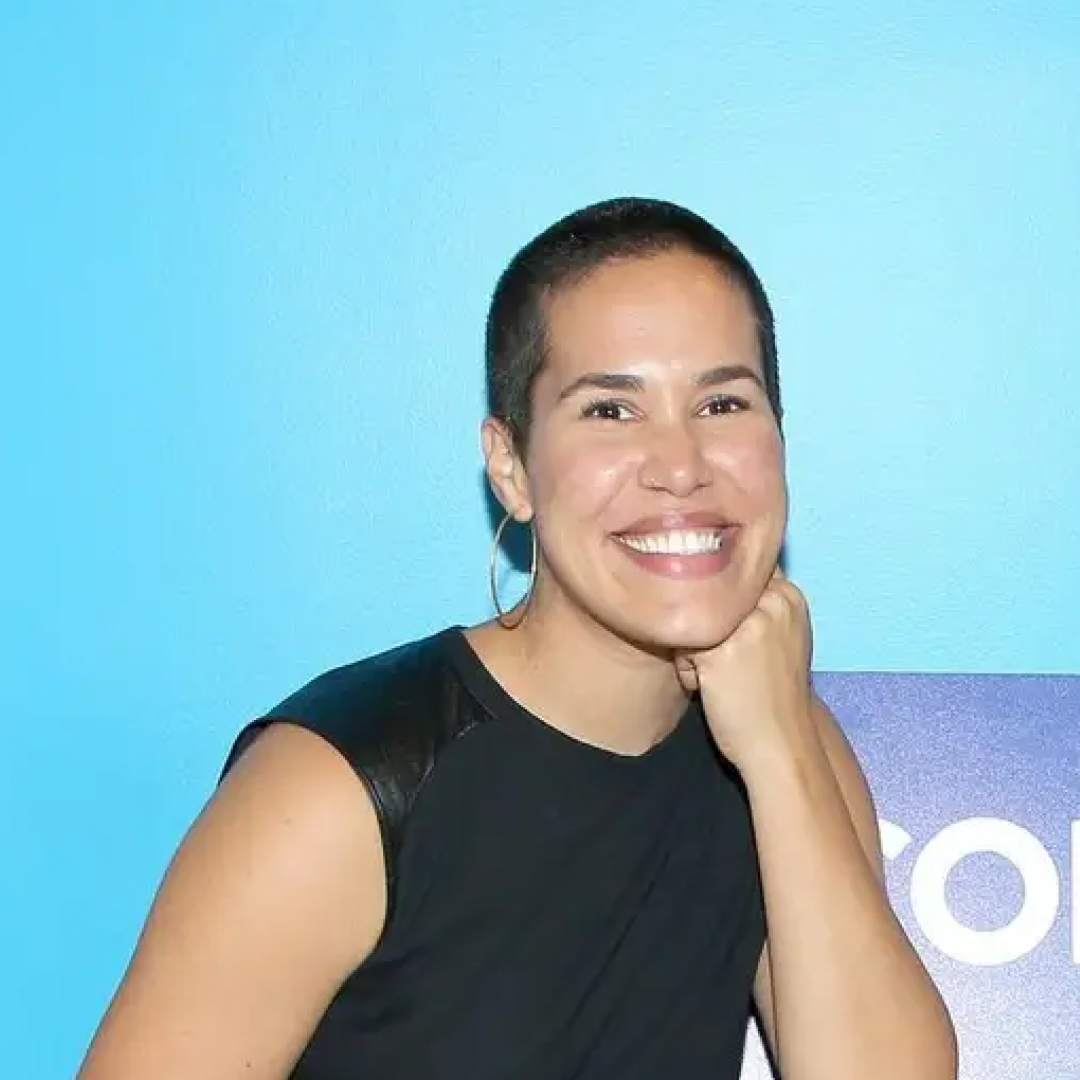Imagining a Just Technological Future
Mimi Fox Melton / Feb 10, 2025Mimi Fox Melton is the CEO of Code2040, a national non-profit that seeks to resource and mobilize the largest racial equity community in tech.

Hanna Barakat & Cambridge Diversity Fund / Better Images of AI / Colossal Harvest / CC-BY 4.0
So far, 2025 has been marked by the confluence of white supremacy and the tech industry. Flanked by oligarchs including Meta founder and CEO Mark Zuckerberg, Amazon founder Jeff Bezos, and billionaire tech entrepreneur and Trump patron Elon Musk, the Trump administration has moved swiftly, signing numerous executive orders that target groups such as immigrants and transgender people and policies and organizations such as government DEI programs, the Paris climate agreement, and the World Health Organization. These moves endanger the most vulnerable among us and will further codify systemic racism and justify racial violence across the United States. As we lose ground on racial equity measures in tech, it’s urgent that we recognize the “innovation economy” as critical terrain in the fight for the future.
As CEO of Code2040, a nonprofit dedicated to advancing racial equity in tech, I often converse with early-career Black and Latinx technologists and computer science majors. They remind me that a more just technological future is possible. Even as we face rising white supremacy and fascism, the Code2040 Fellows maintain a commitment to imagination, creativity, and innovation for more livable, more free futures. At our last board meeting of 2024, just before the Trump administration assumed office, a Fellow invited us to consider what we hope for the future of technology outside the bounds of what we think is likely.
The reality is that we face unprecedented ecological devastation, income inequality as massive as that of the Gilded Age, and extreme racial inequities globally. Technology, long hyped as the answer to our social problems, has proven to be a significant driver of those problems. Over the last 20 years, Silicon Valley has increased DoD and state and local law enforcement contracts, driven high costs of living, displaced scores of Black and Brown people from their long-time homes, and decimated working-class jobs. Many of us are collectively coming to the understanding that if we don’t start running tech, tech will continue to run us. We need to resource creative, imaginative technologists who understand both the adverse impacts of racial inequity in tech and who are imagining the possibilities for a more just technological future.
The Fellow’s question slowed us down and invited us to consider that there is reason to imagine possibilities beyond what we can see within current circumstances and constraints. The question coming from her, a young, future technologist facing an uncertain political and ecological future, reminded me of the need to look to people rather than AI or other tech solutions to solve our most pressing social problems. We need Black and Latinx technologists to acquire and hold positions of power in the industry. The Code2040 Fellows are the future of tech, and they need us to show up to support them, create pathways for them to enter the industry, and offer them the community that will sustain them through their careers.
Our Fellows see technology as a tool for creating connections and as a bridge across differences. As current students, they can envision technologies uninhibited by the limitations imposed by corporate productivity and profit requirements. I remember years ago, one Fellow pitched a technology that could translate English to Spanish and Spanish to English in real time to bridge a gap in communication for his immigrant parents. Today, this technology exists.
Black and Brown people have been at the forefront of innovation for centuries. Every grade schooler learned about George Washington Carver and his myriad inventions, but we also have Ida B. Wells, who one can describe as an early data scientist, and countless unnamed stylists who set fashion trends on very low budgets before TikTok was even a seedling of an idea. We solve societal problems that we did not create and invent ways to live, thrive, and inspire in a country with systems that incentivize our demise.
Addressing systemic racism in tech is more urgent than ever, and it is the way to advance technological innovations that will improve life for everyone. At the same time, unemployment in tech is high, giving tech companies a competitive hiring pool. Since the technology industry only recently began to diversify, many Black and Brown technologists are early in their careers and are passed over for older, often white talent with longer employment histories. A toxic political environment combined with a tech job market that favors employers and a sector where DEI efforts have been defunded make racial equity advocacy a political third rail. These conditions disincentivize disruption of the status quo to alter the trajectory of AI: technologist jobs feel insecure, they are easily replaceable, and companies have made clear their stance on social and political issues.
So what can we do? It’s time to go back to the basics. We need to create spaces for collaboration and to bring in diverse sets of voices and views. We need to prioritize the perspectives of Black and Brown people who know intimately that technology can be used to build connections and create more possibilities but that it can also be leveraged as a tool for propagating white supremacy and racial violence.
Progress isn’t always linear, so we can expect and prepare for the time when efforts toward equity feel more expansive. As the Fellow guest speaker at our board meeting encouraged us to do, we can choose to see the truth of the moment and also practice a discipline of hope. Tech reflects the reality of our world, which is why we see algorithmic racism and why one set of experts worry that AI will determine that the solution to our most urgent social problems is to annihilate the human species. But what would technology look like if there was more joy? If everyone had secure housing, enough food to eat, leisure time, and access to health care? If we used it to build a world where our elders and children were supported and cared for? What could we create if we were fostering connection, creativity, imagination—and the bodily security—that makes these things possible?
The human capacity for innovation is absolutely incredible. We need to harness the power of imagination toward our social good and away from a reckless drive for profit that is destroying the planet, fueling warfare, and decimating our creativity. As we face a year where technology, including AI, will undoubtedly drive the economy and our political landscape, we must see the tech industry as critical terrain in our fight for the future. What could we build in the innovation economy if Black and Latinx technologists with a commitment to building freer, more livable worlds were valued as esteemed leaders and held positions of power in the tech industry?
We are at a critical juncture for the tech industry and, quite frankly, for the future of humanity. It is clear that technology will play a role in shaping that future and that the tech industry is the industry driving us forward. We need to ask ourselves who we want in the driver’s seat and make moves to get those people there. Do we want egomaniacs and eugenicists driving innovation, or do we want ethical leaders who strive to move in a way that is aligned with their integrity and are dedicated to technological innovation as a means to create more possibilities for us all? I certainly want people who are committed to collective social good, to making freer and more just worlds in leadership roles and holding decision-making power–those leaders are the Code2040 fellows.
We believe the industry can design more livable futures and that Black and Latinx people can and should be leaders in those efforts. That’s why we are building power with Black and Latinx tech workers to lead systems change efforts, including creating policies, practices, and ways of being that lead to racial justice in the tech sector and beyond. The role of the tech industry is to help society evolve how we form connections, share information, and build resilience. Together, we can hold the tech industry accountable and build a movement to transform the innovation economy: our collective future depends on it.
Authors
